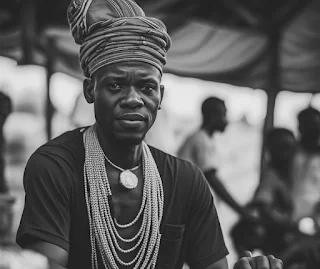Ideas and Gold: Mandinka Traders History
Mandinka traders were known for their entrepreneurial spirit.
Mandinka traders were distinguished for their expertise in trade and diplomacy and played a pivotal role in fostering economic ties among African tribes.
Renowned for their ability to navigate the intricacies of diverse languages and customs, Mandinka traders served as vital intermediaries, facilitating commerce and cultural exchange across West Africa.
 |
| Mandinka traders |
📌 Learn about Africa’s powerful civilizations before Europeans.
Their adeptness in bridging cultural divides contributed to the flow of goods and the diffusion of ideas, religions, and knowledge throughout African regions, underscoring their significance in the vibrant tapestry of West African trade networks.
Their traditional homeland spans regions in countries such as The Gambia, where they are one of the largest ethnic groups, Senegal, particularly in the east, Mali, with notable populations in the western and southwestern regions, Guinea, where they are present in the north and northeast, Sierra Leone, Côte d'Ivoire in the northern regions, Liberia in the northern part, Burkina Faso with smaller communities in the west, and other West African countries as a result of historical migrations and the African diaspora.
Their geographical location in the western part of West Africa positioned them at the crossroads of key trade routes, including the trans-Saharan trade. This advantageous position allowed them to engage in both regional and long-distance trade.
Mandinka communities often specialized in economic activities like farming, mining, and craft production, enabling them to trade diverse goods, including gold, salt, ivory, kola nuts, textiles, and slaves such as pawning, horses, cattle, and calabashes. Barter and exchange of goods were common trade methods, especially in regions where cash currency was not widely used.
Their entrepreneurial spirit led them to form trade caravans and establish trading posts, key elements in their trade network. They organized caravans consisting of people and pack animals such as camels or donkeys and goods. In regions with navigable rivers, they used boats and canoes for transportation, particularly for goods like salt, which could be transported by water.
They established trading posts and settlements along trade routes and near market centers to facilitate trade and provide a resting place for travelers. Whether traveling by land or river, the Mandinka's methods of transportation and exchange, including trade caravans, river transport, and the establishment of trading posts, contributed to their reputation as adept and influential traders in West Africa.
European colonialism in Africa, the dynamics of Mandinka Traders changed.
With the advent of European colonialism in Africa, trade dynamics underwent a profound transformation. European colonial powers imposed artificial boundaries on the continent, carving up Africa into territories that often disregarded preexisting cultural, ethnic, and trade affiliations. This redrawing of maps and the assertion of colonial control had significant ramifications for the Mandinka.
The imposition of colonial boundaries disrupted the traditional trade routes that had thrived for centuries. The free movement of people and goods across vast regions was hindered by colonial borders, often established with little regard for the economic and social ties that historically connected communities. Trade routes essential for exchanging goods like gold, salt, and ivory were suddenly interrupted, making it more challenging for Mandinka traders to navigate and sustain their trade networks.
Colonial powers imposed their own economic systems and structures, including currencies and taxation policies. This transition to European monetary systems further complicated trade for indigenous merchants, traditionally using barter and local currencies. The introduction of cash-based economies favored foreign businesses over local traders.
Imposing colonial control also led to changes in land ownership and access to resources. Land, often essential for agriculture and trade, was restructured under colonial regimes. Indigenous communities, including Mandinka traders, sometimes found themselves dispossessed of their ancestral lands or subjected to exploitative land-use policies, affecting their ability to engage in trade.






